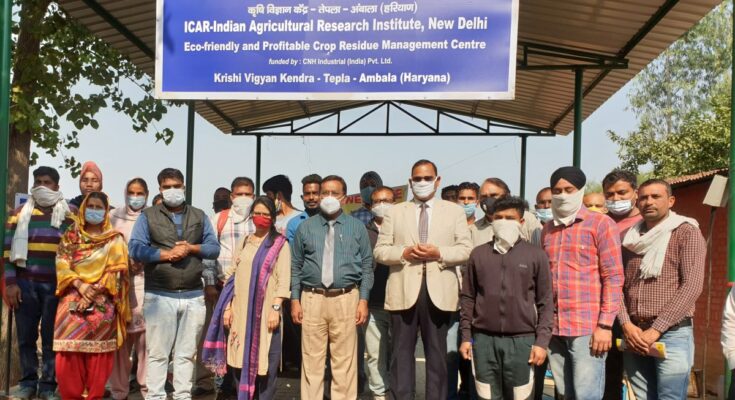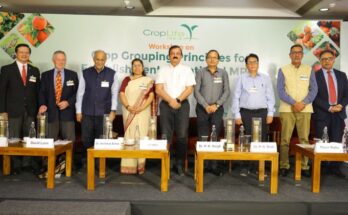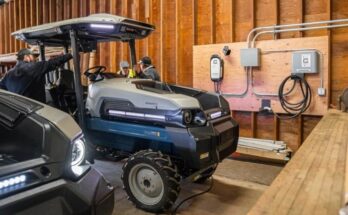In order to tackle the menace of stubble burning, causing massive pollution with the harvesting of Kharif crops in northern India, CNH Industrial India and ICAR-Indian Agricultural Research Institute (IARI) have joined hands and launched a crop residue and straw management project at Krishi Vigyan Kendra (KVK), Ambala in Harayna.
Stubble burning, which is one of the leading causes of air pollution, contributes between 17.9 percent and 39.5 percent to particulate matter in the northern plains and emits a large amount of toxic pollutants in the environment. Being the quickest and cheapest way to dispose of crop residue in the fields, the practice adopted by most farmers has not only become a major environmental threat, but leads to deterioration of soil health and impacts soil productivity.
Speaking on the occasion, Kavita Sah, Head of Corporate Social Responsibility, CNH Industrial India, said, “The practice of burning agriculture waste in fields amid the COVID-19 pandemic could further exacerbate an already difficult situation. It also destroys soil health, which is already degraded. To overcome the growing challenges of stubble management, CNH Industrial India has joined forces with IARI to develop a sustainable and economically viable residue management solution for the farming community.”
CNH Industrial India, in collaboration with IARI, is providing agricultural equipment — tractors, balers, mulchers, rakes –, financial support — recurring and non-recurring — and technical machinery support to develop a holistic solution for straw and crop residue management.
Underlining the straw management programme, Dr. AK Singh, Director, ICAR-Indian Agricultural Research Institute (IARI) said, “This collaborative effort with CNH Industrial, India will indeed benefit the farming community, as it will provide them with a comprehensive solution to the problems related to residue burning. This programme will enable customisable microbial and mechanical technologies, specific to the individual location to use rice and wheat crop residue as animal feed and to transform it into energy and compost. These custom-built technology packages will be evaluated through the farmers’ participation in the research programme alongside the development of a business model for the economical and eco-friendly use of crop residue.”
During the event, there was a brief demonstration of the project, which started with baling through to initiation of composting, production of animal feed blocks from bales, a key project deliverable.
CNH Industrial India is the market leader in crop residue management with its advanced solution and has been providing a sustainable solution for energy generation through renewable sources together with curbing environmental pollution. With the launch of this pioneering project, CNH Industrial India has taken a step forward to provide effective and sustainable solutions for straw management and tangible improvements to the farming community.
The project was inaugurated by Dr. AK Singh, Director, IARI, in the presence of the project lead, Dr. Indra Mani from the Division of Agricultural Engineering, IARI; Dr. Akhil Bakshi, Chairman, KVK, Ambala; Dr. PK Sharma and Dr. PK Sahu, IARI; Dr. Upasana Singh, Head of KVK; Dr. Naveen Saini, Nodal Officer for the CHN Industrial Project, KVK Ambala; Kavita Sah, Head of Corporate Social Responsibility at CNH Industrial India, and farmers from surrounding villages in Ambala.




